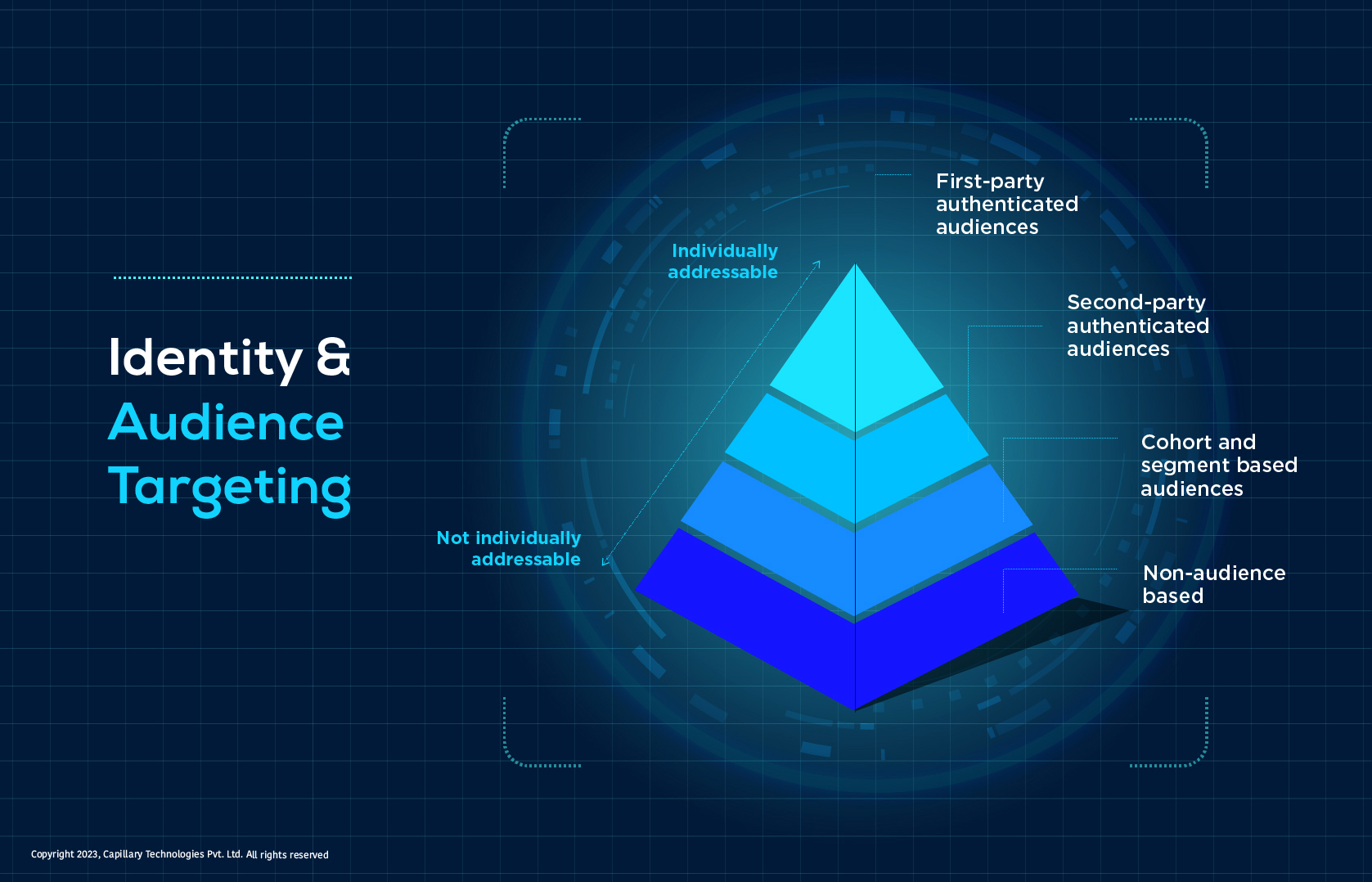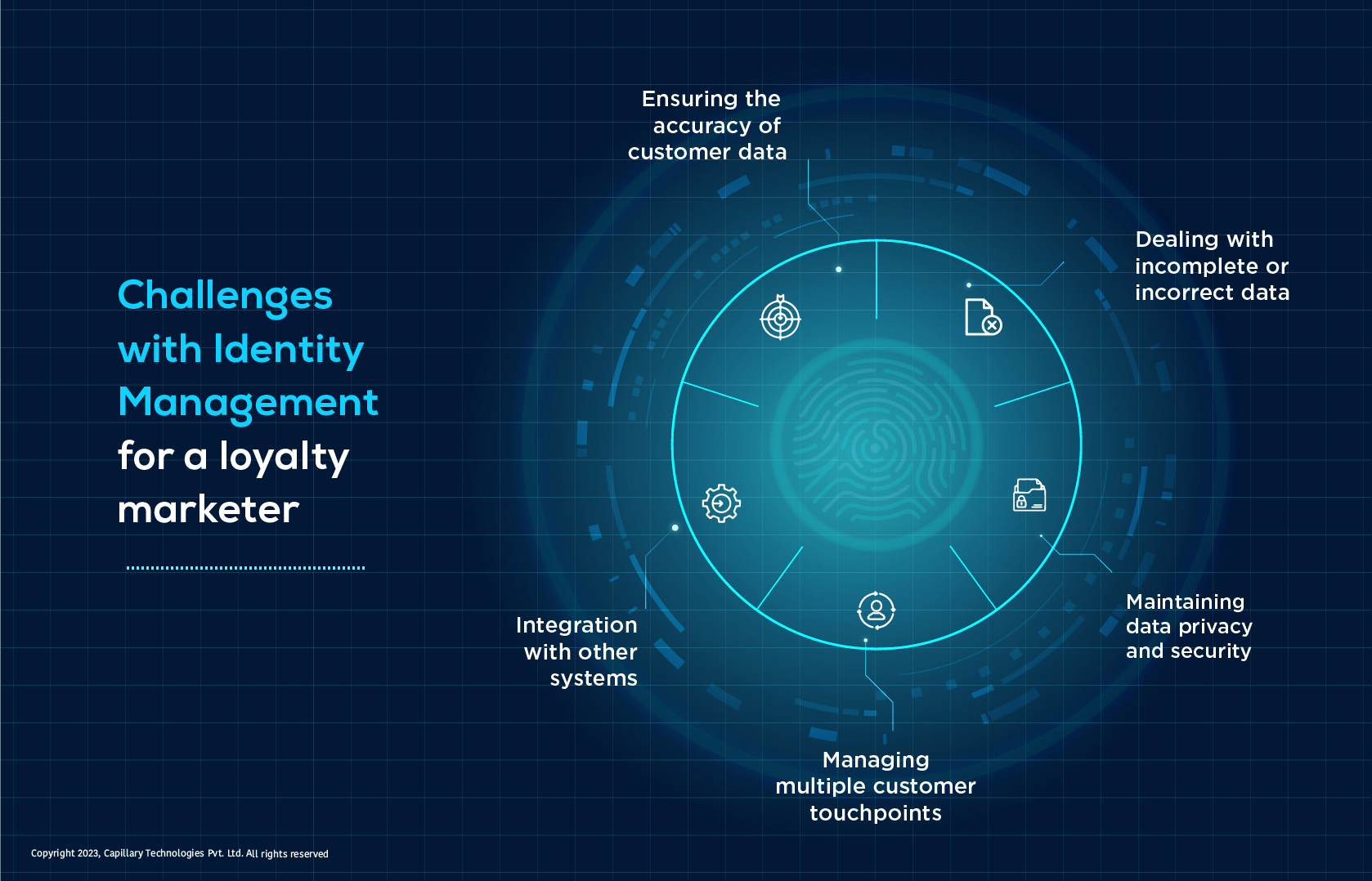- Design industry shaping loyalty programs
- Integrate easily and go live quicker
- Deliver hyper-personalized consumer experiences
Blue Rewards from Al Futtaim Group Shares Loyalty Success Stories and Evolution. Watch Podcast >
Capillary Announces 2nd Annual Captivate 2025 Summit: Transforming Loyalty Management with New AI Tech Read more >

Data privacy, security, and identity management have become increasingly important in today’s digital world, especially for loyalty programs. As customers grow more cautious about how their data is used, brands are navigating a complex landscape of privacy regulations like GDPR, LGPD, and CCPA. At the same time, managing customer identities across devices, online and offline touchpoints, is essential to delivering consistent and personalized loyalty experiences.
For brands aiming to build trust and retention, getting identity right is no longer optional. A secure identity management strategy ensures data accuracy, respects customer privacy, and provides the flexibility needed to comply with regional data laws; all while driving loyalty program performance and long-term engagement.
Firstly, we need to understand what we mean by identity and its components. Identity can be looked at as a sliding scale of attributes varying from person level (individually addressable) to non-person level (not individually addressable).

There are various kinds of data: zero-party data, first-party data, second-party data, and third-party data. The first three of them would fall under individually addressable data and then there are- cohort & segment-based audiences and contextual audiences.
An advanced CDP (consumer data platform) like Capillary’s CDP+ is a secure way to resolve identities and help marketers get the best out of their customer data. But before we get there, there are several factors with identity management that have to be considered in the context of loyalty management software.

It’s essential to ensure that customer data is accurate and up to date to provide a seamless experience for customers and prevent issues such as incorrect points balances or rewards.
Protecting customer data is crucial in order to maintain trust and prevent data breaches. This includes implementing measures such as secure authentication and access controls.
Customers may interact with a company through multiple channels, such as in-store, online, and over the phone. It’s important to be able to seamlessly connect these interactions and maintain a consistent view of the customer across all channels.
It’s not uncommon for customers to provide incomplete or inaccurate information, either intentionally or unintentionally. This can make it difficult to accurately identify and track customers, leading to issues with personalized communication and marketing efforts.
In order to provide a comprehensive view of the customer, loyalty management software may need to be integrated with other systems such as financial, marketing, or HR systems. This can present challenges in terms of data compatibility and security.
Now, when you’re selecting a platform to run efficient and secured loyalty programs, here are some things that a platform can help you with.
This can include methods such as multi-factor authentication, which requires users to provide additional proof of identity beyond just a username and password.
Encrypting data makes it unreadable to anyone who does not have the proper decryption key, protecting it from being accessed by unauthorized parties.
Storing customer data on secure servers, such as those that use firewalls and intrusion detection systems, can help prevent unauthorized access.
It’s important to keep security measures up to date in order to stay ahead of new threats. This can include installing software updates and patches as they become available.
Providing users with information on how to protect their own identity, such as using strong passwords and being cautious of phishing attacks, can help prevent identity theft.
Regularly monitoring for suspicious activity, such as unexpected login attempts or unusual data access, can help detect potential identity theft and allow for quick response. (read about Capillary’s Fraud Detection for loyalty programs)
At Capillary, identity management is built into the core of our loyalty technology. With CDP+ at the foundation, brands can unify identity data, match customer touchpoints using advanced resolution methods, and deliver secure, personalized engagement at scale. On top of CDP+, our flagship product Loyalty+ helps marketers execute some of the best loyalty programs (250+ brands use Loyalty+ to reach 875mn+ customers).
By securing customer identities and enabling privacy-first personalization, businesses can go beyond one-to-one connections to offer truly contextual loyalty experiences. In a world where trust is currency, a strong identity resolution strategy is key to future-ready loyalty programs.
Interested to know more? Talk to one of our loyalty experts today!
Secure identity management protects customer data, prevents fraud, and ensures accurate customer profiles, leading to more personalized and trusted loyalty experiences.
Top practices include using multi-factor authentication, encrypting personal data, syncing identities across touchpoints, and regularly updating security protocols.
It ensures data privacy, builds brand trust, and enables seamless personalization across channels which are key factors for driving long-term customer loyalty.
By resolving fragmented identities and securing customer data, brands can deliver relevant, frictionless interactions that increase loyalty program engagement.
Technologies include CDPs with identity resolution, secure servers, AI-based fraud detection, blockchain, and biometric or multi-factor authentication.